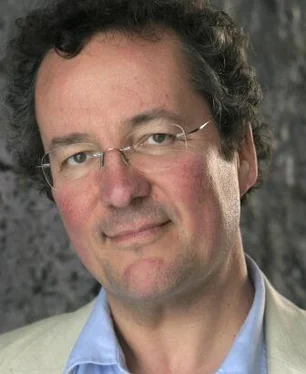For Simon, the next half hour or so was disturbing in the extreme. The screams of the two girls had brought some farm labourers running from a field a short way off, and now five men stood scowling grimly at Baldwin and him. A sixth was retching near the river, and being comforted by one of the girls, who was still dreadfully pale, but seemed grateful for the opportunity of forgetting her own horror and concentrating on someone else’s. Another man had gone with her friend into the city to fetch help.
In England, Simon would have known exactly what to do and say. He was not the First Finder, he was the fourth witness to arrive, after the two girls and Baldwin, and could be sure that he would be fined, but that would be the limit of his expense. But he wasn’t in England, he was in Galicia, and he wasn’t sure what the law said about the treatment of witnesses. However, he knew perfectly well that his neighbours in Devonshire, where he lived, would infinitely prefer to accuse a stranger than think that one of their own could have committed a foul murder such as this. If a local jury accused a local man, it was because he was possessed of a ‘common fame’ – an unenviable reputation for theft or robbery or simply mindless violence.
Here, Simon had little idea how matters would stand. He believed in the superiority of the English legal system, in which a man was innocent until proved guilty. In foreign parts, so he had heard, that rule didn’t hold sway, and sometimes a man could be held until he had been tortured to seek the truth. Simon was appalled by the thought that an inquest could rely on the evidence of a man who had been systematically crippled, but he knew that it happened abroad. Baldwin himself was proof of that. The Templars had been tortured, generally one at a time in front of their comrades, so that each should know exactly what was in store for them, should they refuse to confess.
Torture was not routine, apparently, but that was of little consolation, because all knew that the ways of foreign laws were flawed.
Simon licked dry lips as he and Baldwin waited, trying to avoid the hard stares of the peasants. One in particular was holding his long-bladed knife at the ready as though wishing that one of the two would try to escape.
Simon found he could remember some of the other things he had heard about the legal system abroad. Often, a court case was based on one man accusing another. If he could bring one other witness to support his contention, the case was decided in his favour – unless the defendant could bring more people to support him . From what Simon had heard, it all came down to numbers. Clearly it was a mess, because if two men were prepared to cook up a story between them, they could get an innocent man convicted. And then, if the latter refused to confess, he would be tortured until he admitted his guilt!
In England the law was more effective, because the jury itself determined the guilt or innocence of the accused. The jury would report offences to the judges and, if they knew who had committed the crime, the jury would accuse him. Then it was up to the Justice to impose the penalty. Thus all the folk of the vill were involved; the jury comprised all the adult males, after all. And Englishmen at that, he reminded himself, glancing at the man with the knife.
It seemed hours before there was the sound of a crowd approaching, although Simon was sure, from looking at the sun, that it could only have been a short while. Then he saw a drifting of dust over the low trees towards Compostela, which gradually grew. At the same time, he was aware of his heart beating faster.
This was a novel sensation. He shot a look at Baldwin and saw that his friend was frowning meditatively at the corpse, and although he glanced up a few times in the direction of the city, he was plainly unconcerned about his own or Simon’s safety. Simon wished he could feel Baldwin’s confidence. No matter that he was innocent as a newborn lamb, it was the mere threat of being caught up in the machinery that was so intimidating, especially if the victim was gripped in a foreign system. Still worse if he, the foreigner, did not have a grasp of the language. From now on, Simon swore that he would always treat any strangers at home with more than usual courtesy and kindness, explaining to any man who appeared before him the whole system in which the fellow was caught.
The procession which at last came into view consisted of a man at the front with a broad hat concealing his face, while at his side walked a priest, also wearing a wide-brimmed hat against the sun. Behind them creaked a small cart, obviously prepared for collecting a body as a door was laid upon it. A fair group of onlookers were straggling alongside this makeshift cortege.
The first man tilted his hat up as he reached them, peering at the peasants intently before turning his attention on Simon and Baldwin.
He was a tall man, his shoulders slightly bowed, and he had a narrow, hawk-like face, with high cheekbones and a thin gash of a mouth. The eyes in his browned face were very dark; there was a ferocity in them that Simon found intimidating. It was perhaps because the man rarely blinked, which gave him a strangely reptilian aura.
This man studied Simon for some moments, then turned and subjected Baldwin to the same slow survey, before snapping out a question. Baldwin knew some Castilian and a little Galician, but he wanted to ensure that there was no room for misunderstanding. He looked at the priest and spoke in Latin. Simon knew that language from his studies, but Baldwin and the priest spoke so swiftly that he found it difficult to keep up. The priest translated to the inquisitor, listened to the reply, and translated that to Baldwin, who responded and pointed to the girl witness who had remained behind with them.
There was much shaking of heads as the inquisitor spoke to her. Soon her companion, the girl who had fetched him, was brought to the front and he questioned the two together, then the peasant men, all of whom now appeared obsequious, a fact which confirmed Simon’s belief that this was the local investigator or judge.
The man nodded at last as if he was content with all he had heard, and crouched at the head of the body. As he did so, a cloud of flies rose from the corpse and he waved them away irritably, pulling out an orange from his scrip and holding it beneath his nose.
Baldwin, Simon saw, was watching him with interest, and even as the man rose to his feet and stood over the body, Baldwin was already staring farther off, in the direction of the water. ‘We should go and look at the trail there,’ he said to Simon. ‘I should like to see whether there are any signs in the mud at the side of the water. Perhaps this woman or her murderer stood or struggled on the bank.’
The investigator gave him a piercing look, as though he had interrupted his thoughts, then spoke to the cleric, who sighed and translated again for Baldwin. Baldwin replied in Latin, and the investigator walked carefully around the body, gazing at the ground nearer the water. At last, after staring concentratedly for some while at something, he looked up and motioned to Baldwin.
Simon walked with his friend and found that the investigator was pointing at a large stone lying near the riverbank. It lay on a piece of mud, looking entirely out of place, as though a man had tossed it towards the water, but missed by some feet. If there were any doubts that this was the murder weapon, the smears of blood all over it dispelled them.
‘The murderer killed her, then chucked the rock back here,’ the Bailiff murmured.
‘I expect he intended to hurl it into the river,’ Baldwin nodded.
The two were so involved in their observations that they had momentarily forgotten the Galicians with them. Now the investigator spoke again.
Читать дальше












